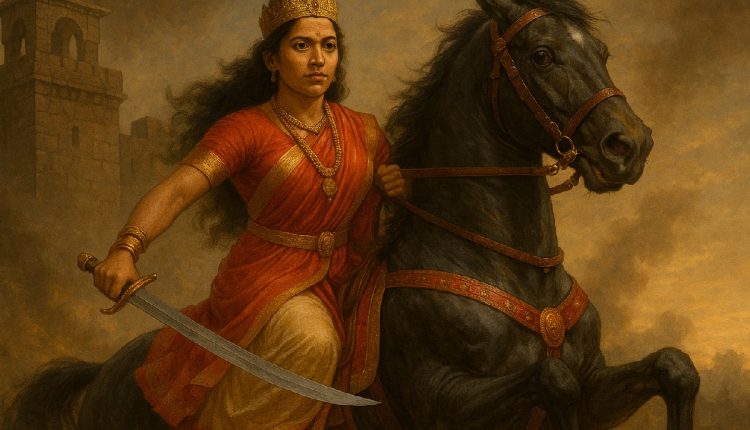When we speak of India’s freedom struggle, the first names that come to mind are often the heroes of the 1857 rebellion or the Gandhian era. However, long before these mainstream uprisings, there was a warrior queen from Tamil Nadu who waged war against the British with strategy, courage, and foresight. Her name was Rani Velu Nachiyar — and she deserves her rightful place in the pantheon of India’s earliest freedom fighters.
Early Life and Royal Lineage
Velu Nachiyar was born in 1730 CE in the princely kingdom of Ramanathapuram (present-day Tamil Nadu). She was the only daughter of King Chellamuthu Vijaya Raghunatha Sethupathy and was raised as a royal with the privileges of a princess — but her upbringing was anything but conventional.
Unlike most women of her time, Velu was trained extensively in:
-
Valari (boomerang fighting)
-
Silambam (stick martial art)
-
Horse riding and archery
-
Tamil, Sanskrit, and Urdu
She was as intellectually astute as she was physically fierce — qualities that would define her legacy.
The Tragedy That Sparked a Revolution
Velu Nachiyar was married to Muthu Vaduganatha Periyavudaya Thevar, the ruler of the Sivaganga kingdom. However, in 1772, her life took a dramatic turn when the British East India Company, aided by the Nawab of Arcot, killed her husband in battle.
Widowed and ousted from her kingdom, Velu sought asylum in Dindigul, where she spent eight years regrouping, planning, and building alliances.
The Art of Diplomacy and Strategy
While in exile, Velu Nachiyar displayed not only military acumen but also political wisdom. She forged a formidable alliance with Hyder Ali, the Sultan of Mysore — a known adversary of the British. Impressed by her conviction and courage, Hyder Ali provided her with:
-
An army
-
Ammunition
-
Training facilities
She also formed the first recorded women’s army in Indian history, known as the Udaiyaal Battalion, named after her loyal commander who sacrificed herself during a mission.
Reclaiming Sivaganga: A Historic Counterattack
In 1780, after years of meticulous preparation, Velu Nachiyar launched her revolutionary counterattack. The most strategic move came from Kuyili, her commander and confidante, who performed a suicidal mission by setting herself ablaze and destroying the British ammunition store.
This act of tactical brilliance crippled British supplies, allowing Velu Nachiyar’s forces to overpower and reclaim Sivaganga — making her the first Indian queen to defeat the British and regain her kingdom.
Rule and Legacy
Velu Nachiyar ruled Sivaganga from 1780 to 1790, focusing on:
-
Rebuilding temples and forts
-
Reviving agriculture and trade
-
Promoting Tamil literature and education
-
Strengthening military defenses
After ruling for a decade, she passed the crown to her daughter Vellacci, becoming one of the few monarchs to voluntarily retire after victory.
Why Velu Nachiyar Matters Today
In modern historical discourse, Rani Velu Nachiyar’s legacy is only recently receiving the attention it deserves. She was:
-
A visionary strategist
-
A female commander centuries ahead of her time
-
An inspiration for later revolutionaries
While the 1857 revolt is dubbed India’s “First War of Independence,” Velu Nachiyar’s 1772–1780 resistance predates it by almost 80 years.
Tributes and Recognition
-
The Government of India released a commemorative postal stamp in her honor in 2008.
-
Statues of her grace campuses and museums in Tamil Nadu.
-
She is celebrated annually in Sivaganga and Ramanathapuram districts.
However, her story still deserves a place in mainstream textbooks and national consciousness.
Conclusion: A Forgotten Flame Rekindled
As a historian, I firmly believe that figures like Velu Nachiyar must be reintroduced to our collective memory — not just as regional icons, but as national heroes who shaped the earliest forms of Indian resistance. Her life is not just a story of war, but a testament to resilience, strategy, and feminist power.
Let us not allow history to forget the queen who lit the torch of freedom, long before it became a national cry.


Comments are closed.